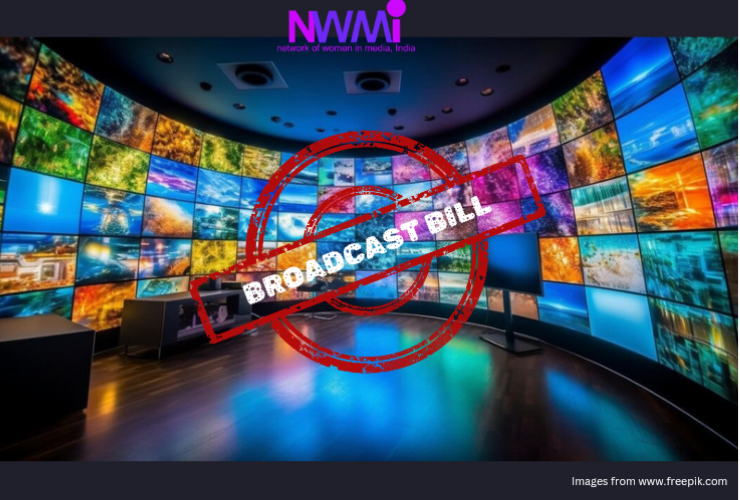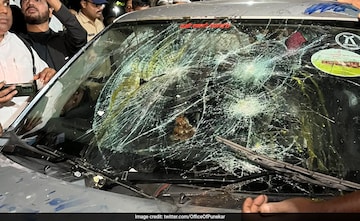

The Network of Women in Media, India (NWMI), has made a detailed submission to the Central Government regarding the proposed Broadcasting Services (Regulation) Bill 2023 that was published by the Information and Broadcasting Ministry to get feedback from the public and all stake-holders.
The Broadcasting Bill seeks to replace the Cable Television Networks (Regulation) Act of 1995, with the stated objective of providing a comprehensive regulatory regime for all forms of broadcasting content from television to streaming platforms. In its letter to the Ministry, NWMI pointed out that the government bestows inordinate powers on itself through this Bill to control the country’s entertainment and news media.
This intent to control and over-regulate is not in the interests of a healthy, independent media or a thriving culture of entertainment. It goes against the very foundations of media freedom in mature democracies everywhere and will irreparably damage the free press, free speech and creative freedom in India, NWMI added.
Since this Bill could potentially drastically alter the media landscape in India, NWMI has exhorted the government to not, under any circumstances, proceed with it without exhaustive discussions among the key stake-holders involved. Considering its far-reaching implications, NWMI said the haste with which the Bill has been drafted and announced to the public, and the limited time provided for responses, is unacceptable.
In its clause-by-clause analysis submitted to the government, NWMI has flagged several concerns that are summarised below:
(1) The draft Bill’s vaguely worded provisions, including its definition of “news and current affairs programmes”, arm it with the potential to cover individual Youtubers, the social media accounts of professional journalists and even citizen journalists.
(2) The Bill places requirements and burdens on news organisations that, while cumbersome for large broadcasting networks, could potentially put small news operators out of business.
(3) The Broadcasting Bill mentions a Programme Code and an Advertising Code “as may be prescribed”. Any public consultation on the Bill is meaningless unless the government publishes an outline of the proposed codes and seeks feedback on those codes too.
(4) In the absence of clearly defined codes available along with the draft Bill, the publication of the draft Bill in itself will have a chilling effect on creators of entertainment and news content who will be driven, if not by their own fears and prevailing uncertainty, then by the management of their organisations, to avoid risk-taking at all costs.
(5) The Bill shows a lack of understanding not just of what constitutes news, but also of the functioning of news organisations when it seeks to club them with creators of entertainment content, especially considering the provision to subject the work of newspersons to Content Evaluation Committees (CECs).
(6) The Bill lays out a system of “self-certification” by CECs that are to be constituted by all broadcasters and broadcasting networks in accordance with the provisions of the Bill. However, the term “self-certification” is a misnomer since the Bill gives the Central Government an overriding role in the formation of CECs and amounts to the government running editorial panels to monitor content being generated by broadcasters.
(7) The Bill places unreasonable curbs on news and entertainment organisations that will inevitably hamper their functioning at a very fundamental level and, in particular, make it financially unviable for small, independent news set-ups to operate.
(8) In the context of OTT platforms, CECs look set to mimic the functioning of the Central Board of Film Certification (CBFC, known in popular parlance as the Censor Board), a statutory body that has been criticised and opposed by generations of Indian filmmakers. Among other things, bringing OTTs under such CBFC-like bodies defies the spirit of the recommendation of the Committee of Experts constituted by this government and chaired by the renowned filmmaker Shyam Benegal, that had called for a more liberalised certification system even for films.
(9) The Central Government’s overarching role in the functioning of news and entertainment media as per the provisions of this Bill is further enhanced by the requirement for the formation of a Broadcast Advisory Council, the composition of which will primarily be determined by the Central Government.
Click here to download the Press Release.
NWMI Press Release on Broadcasting Bill submission



